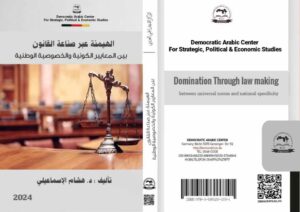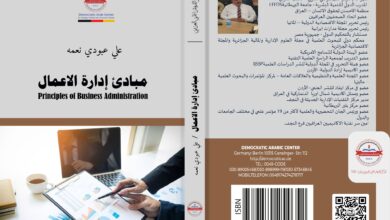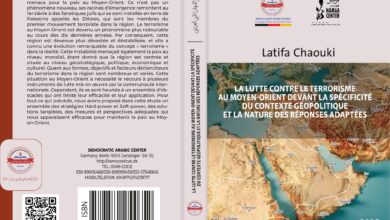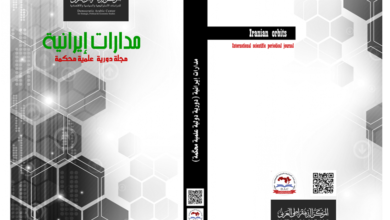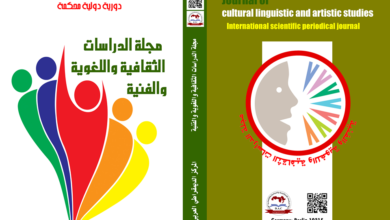الهيمنة عبر صناعة القانون بين المعايير الكونية والخصوصية الوطنية
Domination Through law making between universal norms and national specificity
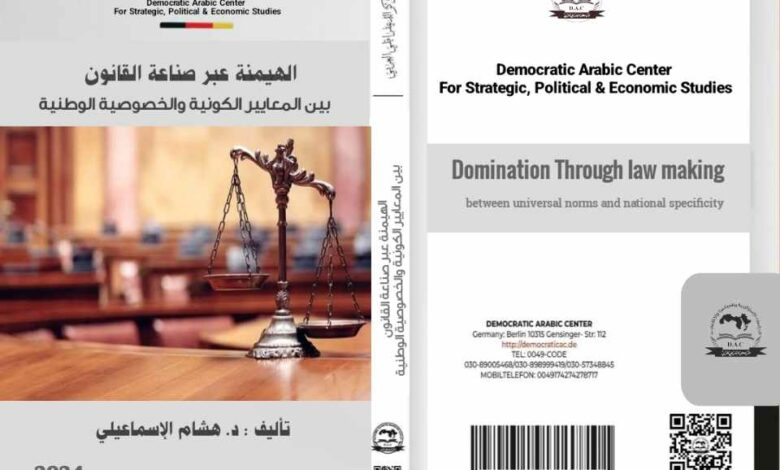
تأليف : ذ. هشام الإسماعيلي
نسخة “pdf”-
الهيمنة عبر صناعة القانون بين المعايير الكونية والخصوصية الوطنية
الطبعة الأولى “2024″ –من كتاب: :- الهيمنة عبر صناعة القانون بين المعايير الكونية والخصوصية الوطنية
جميع حقوق الطبع محفوظة #المركز_الديمقراطي_العربي ولا يسمح بإعادة إصدار هذا الكتاب أو اي جزء منه أو تخزينه في نطاق إستعادة المعلومات أو نقله بأي شكل من الأشكال، دون إذن مسبق خطي من الناشر .
تقديم :-
في سياق النظام العالمي المعاصر الذي يطالب بسمو المعايير الكونية على الخصوصية الوطنية، فإنه يتم قمع الاختلاف الثقافي والفكري غير الغربي من خلال الحث على التجانس أو “محو الذات” لتصبح “الآخر”، حيث تتحول الكونية المعيار الليبرالي الذي يُنظر إليه على أنه مشجع ليس فقط “للعالمية” ولكن “للتوحيد”، الذي يعني تهجينالقوانين الوطنية للدول غير الغربيةوفقا للمعايير الكونية،والهندسة الاجتماعية التي تفرضها مركزية الفلسفة والأيديولوجية الغربية. مما يصعب على تلك الدول أن تحتكر صناعة قانونها الوطني، خاصة في ظل قيام النظام النيوليبراليالذي يعمل على “المستوى فوق الوطني”، باعتماد قانونه النظامي الخاص (القانون الدولي)، ومن خلال افتراضه أن المرجعية الكونية الغربية لم تعد بحاجة إلى معرفة الاختلاف الفكري غير الغربي، بحيث يقومبإعادةتقديم الآخرين غير الغربيين كغائبين أو صامتينأو يتم تجسيدهم على أنهم “الآخر” أو”الاختلاف”، رغم أن تاريخ الفكر الفلسفي الغربي لم يقتحم الحداثة من تلقاء نفسه، بل تأثر بشدة بكل أشكال الحداثة السابقة. فالفلسفةالقانونية الحديثة ليست شيئاً يستطيع الغرب على نحو مشروع أن يطالب باحتكاره بشكل كامل. حيثتوضح هذه النتائج أهميةالتحليل الثقافي للقانون مقارنة بالمقاربات الداعية إلى المواءمة القانونية الشاملة مع المعايير الكونية. كما أن جهود الدول غير الغربية الرامية إلى الدفاع عن “التنوع الثقافي والفكري” وتعزيزه، قد تمكنها من خلال تمسكها بالخصوصية الوطنية، من أن تتبنىمشروعافكريا وسياسياعالميا يهدف إلى تحدي الكونية الليبرالية، من خلالاتباع معايير وقيم بديلة (غير ليبرالية).
Abstract
In the context of the contemporary world order that demands the supremacy of universal norms over national particularity, non-Western cultural and intellectual difference is suppressed through the urge to homogenize or “efface the self” to become the “other,” as universalism becomes the liberal norm that is seen as not only encouraging For “universalism” but for “unification”, which means naturalizing the national laws of non-Western countries according to universal standards, and social engineering imposed by the centrality of Western philosophy and ideology.Which makes it difficult for those countries to monopolize the making of their national law, especially in light of the liberal regime that operates at the “supranational level” adopting its own statutory law [international law], and through its assumption that the Western universal reference no longer needs to know about intellectual differences other than The West, in that it re-presents non-Western others as absent, silent, or embodied as “the other” or “difference,” even though the history of Western philosophical thought did not break into modernity on its own, but was strongly influenced by all previous forms of modernity. Modern legal philosophy is not something over which the West can legitimately claim a complete monopoly, and these findings illustrate the importance of cultural analysis of law compared to approaches calling for comprehensive legal harmonization with universal standards. Also, the efforts of non-Western countries to defend and promote “cultural and intellectual diversity” may enable them, through their adherence to national relativism, to adopt a global intellectual and political project aimed at challenging liberal universalism, by following alternative (non-liberal) standards and values.
الناشر: المركـز الديمقراطي العربي للدراسات الاستراتيجية والسياسية والاقتصادية – ألمانيا – برلين
Democratic Arabic Center- Berlin – Germany

